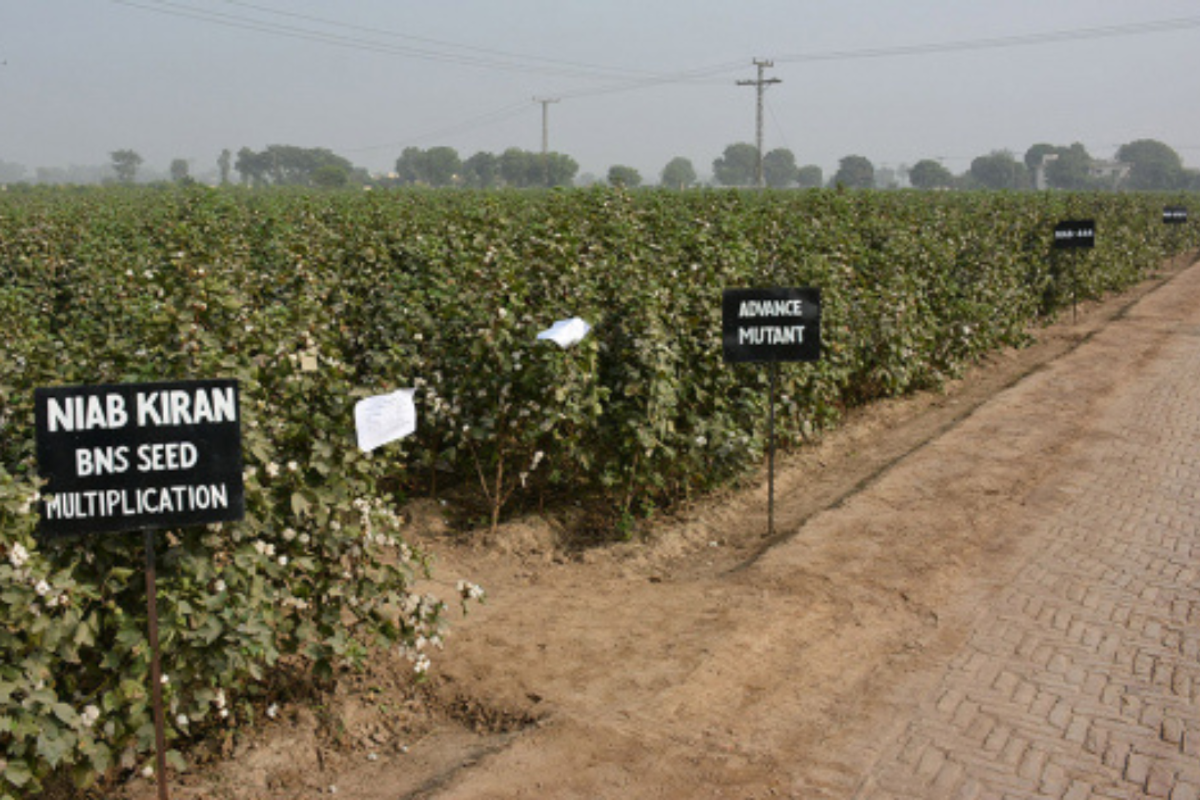Nuclear tech could boost Pakistan's crop resilience: report
Assessment by IAEA, FAO finds potential to improve yield through plant mutation

Hammad Qureshi
Senior Producer / Correspondent
A business journalist with 18 years of experience, holding an MS in Finance from KU and a Google-certified Data Analyst. Expert in producing insightful business news content, combining financial knowledge with data-driven analysis.

A new variety of cotton crop resilient to changing weather is planted in a field in Pakistan.
FAO/IAEA
Nuclear technology could help Pakistan’s farmers cultivate climate-resilient crops and improve yields, the International Atomic Energy Agency (IAEA) has said after an assessment mission in the country.
The assessment mission — the first of its kind in Asia and the Pacific — visited Pakistan under the Atoms4Food Initiative, a joint program of the United Nations’ Food and Agriculture Organization (FAO) and the IAEA.
In its report, the mission said nuclear technology can play a critical role in helping farmers withstand the impact of climate change by boosting crop yields, improving soil and water use, controlling livestock diseases, and ensuring food safety.
Muhammad Yussouf Saleem, the Director General and Chief Scientist of the Agri- and Biotech Division of the Pakistan Atomic Energy Commission, said Pakistan has used mutation breeding to create pest-resistant and drought-tolerant crops like chickpea, rice, and cotton. “We have employed nuclear techniques to improve soil fertility, we’ve reclaimed barren land, optimized fertilizer use for better yields, and reduced costs.”
Mutation breeding, also called variation breeding, is a method that uses physical radiation or chemical means to induce spontaneous genetic variation in plants to develop new crop varieties. This intervention is used to speed up mutation —the alteration of DNA, leading to the development of changes within the organism — which otherwise occurs spontaneously and slowly over generations in people, plants, animals, and all living beings.
Saleem said the Atoms4Food Initiative will further expand our cooperation by engaging new partners and breaking silos across sectors with a whole value-chain approach.”
The mission highlighted the need to revitalize Pakistan’s seed system so improved plant varieties reach farmers. The report added the IAEA has supported Pakistan’s Nuclear Institute for Agriculture & Biology in transforming salt-affected soils into productive farmland.
Diseases in animals
The report also recommended urgent interventions to build local capacity for controlling livestock diseases such as foot-and-mouth disease, peste des petits ruminants, hemorrhagic septicemia, and poultry pathogens, which cause significant economic losses.
“Each year, these animal diseases cause significant economic losses in terms of reduced milk and meat production in Pakistan. Hundreds of millions of vaccines must be imported each year at great cost to the country and, because they were developed in a different context, the doses are often ineffective,” the report noted.
To overcome this challenge, the Atoms4Food initiative will do capacity building for the use of nuclear technologies to detect, characterize, and monitor animal diseases, zoonotic diseases, and antibiotic resistance, and produce safe and effective vaccines against animal pathogens using irradiation.
The report also pointed out that Pakistan lacks an effective system to test and control food safety, which impedes the export of agricultural produce from Pakistan.
“A dearth of accredited testing capacities for mycotoxins, veterinary drugs and microbes are a bottleneck in Pakistan’s efforts to improve the safety of food products for foreign markets,” it added.
The assessment mission recommended scaling up monitoring capabilities and establishing a national plan to ensure safety across the food value chain.










Comments
See what people are discussing